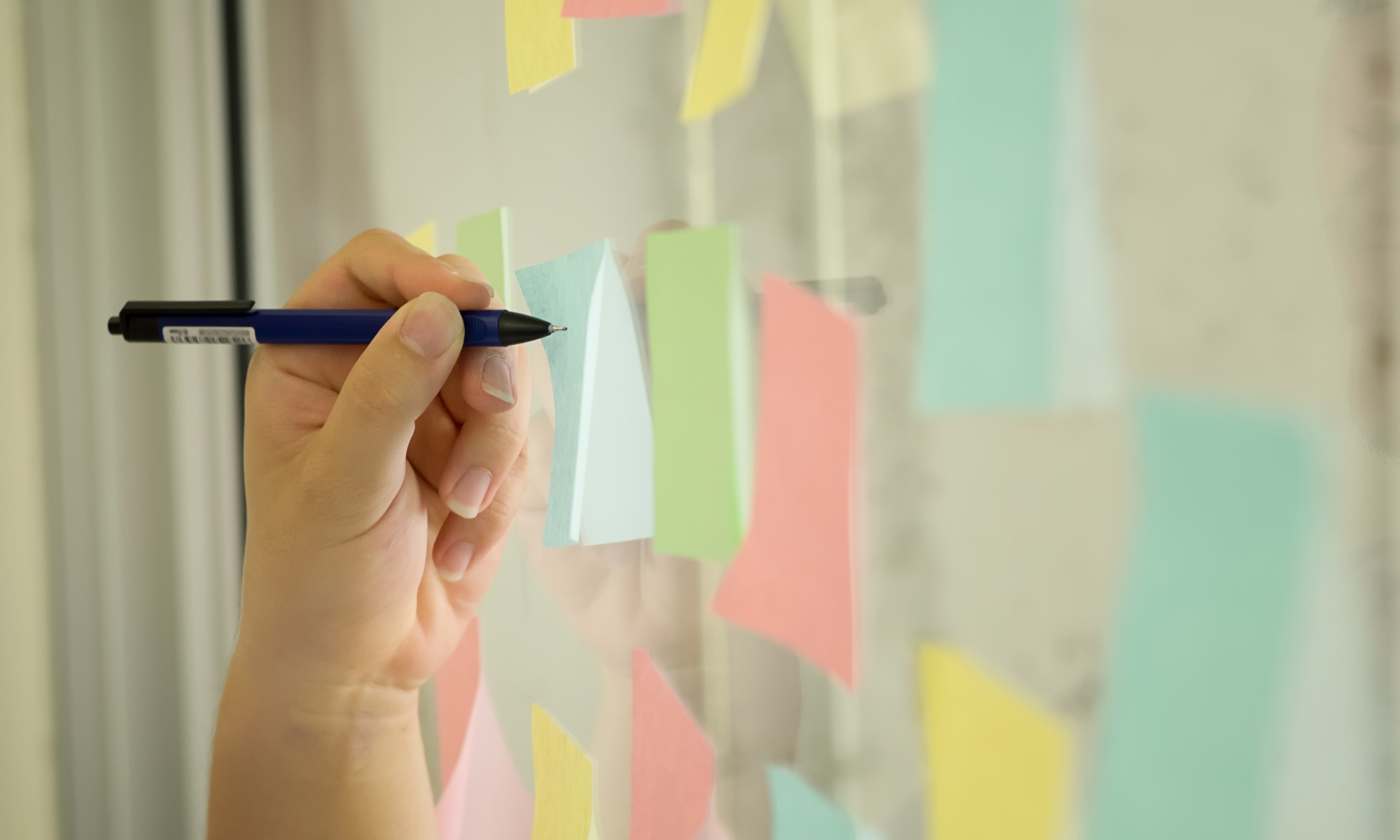
Our blog
Experiential Learning
Experiential learning is the process of learning through experience, and is more specifically defined as "learning through reflection on doing". It is a very effective strategy to create sustainable and inclusive learning experiences.
System Mapping
The ecosystem map is a synthetic representation capturing all the key roles and dynamics that have an influence and interact with the environment of an entity (individual, team, organization).
Feedback - a rapid learning journey
In this blog I will share how we in the Dialogue context understand the word “feedback”. There are many different approaches to feedback. I want to show you a very efficient way of learning through feedback.
Dialogue with hot topics in the Fish Bowl
A facilitation method for hot topics and transforming the field of collaboration.
Spiderweb - A measuring tool for your facilitator skills
In this blog we want to introduce a very simple and practical tool to measure your X on your internal abilities skills map. It shows you your strengths and your weak spots so that you can decide where to focus your next learning steps as a space holder on.
The Pareto principle (80/20 rule)
The Pareto principle, also called the 80/20 rule, states that roughly 80% of results come from only 20% of efforts or causes. In the best of cases, applying this principle allows us to achieve more with working less, because we are smarter about how we invest our time.
Good enough for now, safe enough to try (GESET)
Striving for the illusion of perfection can cripple our self-esteem as human beings, and completely stifle our progress as a team or organisation. Instead of being overly critical, blocking others for no valid reason or never getting out there out of fear of not being perfect enough, get into the GESET mindset!
Prototyping canvas
The prototyping canvas is a great tool to visually map out your prototype and get more clarity on its different aspects. It can be used when doing first attempts at a prototype to co-create it alone or with a group.
The Dialogue Spiral - the natural flow of Dialogue
The Dialogue Spiral is a model that shows us as facilitators and as participants how any group process naturally develops, what phases a group will experience in a natural flow of conversation, and how to identify what underlying dynamics is at play in that process.
The key principles for making dialogue
By ‘dialogue’ we mean the kinds of conversations that change something in us when we are part of them, and that shift something between the people who are involved in the conversation.
Guided Journaling
Guided journaling is a self-reflective process, allowing participants to access deeper levels of self-knowledge, based on a set of prepared questions. The reflection is spontaneous and happens through the writing itself, by just writing down what emerges in the moment (instead of first thinking and reflecting, and then writing down the reflections).
Appreciative Gift Dialogue
An ice breaker to build creative connectivity within a group for spontaneous speaking. Usually ends with lots of bubbling people.
Dialogue Walks (for Gender Equality) (incl. 4 Levels of Listening)
During our first cycle of the Social Lab on SDG 5 (Gender Equality) we learned that this method can be an impactful way to increase understanding and engagement for this topic. The purpose of a dialogue walk is to engage in deep dialogue, that means authentic listening and sharing.
Wise Crowds - Peer Consultations
This is a simple method to harvest the group intelligence: A space where a “client” can ask for help of “consultants”. Can also be seen as a quick and powerful tool for coaching each other around specific and individual challenges.
The PEMS model
PEMS is a tool/frame to help you design spaces, processes, services or other things in ways that enable a holistic and powerful experience.
Flying Agenda
The flying agenda is basically about facilitating a team process. The following description is very detailed not to be rigid about it, but for you to understand the thinking behind it. What matters is the spirit and the general idea of it. So feel free to adapt this to your context and needs.
2people and 2experiences
This is a beautiful method to facilitate a more personal connection between participants. It is best used rather in the beginning and can be kept general or it can also be modified to address the purpose of the workshop.
4D Mapping
4D Mapping is an embodiment practice and is part of Theory U’s Social Presencing Theater. It is used when working with groups that want to explore their system, the embodied knowing of their bodies, to gain new insights.
Follow our journey
Browse our blog by hashtags:
- #3Dmapping
- #4levelsoflistening
- #5R
- #agenda2030
- #alexandra
- #artofhosting
- #brenébrown
- #Bürger:innenrat
- #caseclinic
- #catalyst
- #catalystlab
- #catalystlab1
- #catalystlab2
- #catalystlab4
- #change
- #CitizensAssembly
- #co-creation
- #collaboration
- #community
- #connection
- #courage
- #covid19
- #creativity
- #dance
- #decisionmaking
- #dialogue
- #education
- #empowerment
- #exercise
- #experience
- #facilitation
- #feedback
- #food
- #funding
- #FundingSystemsChange
- #fundraising
- #future
- #genderequality
- #genderequity
- #genderlab
- #german
- #guidance
- #guidebook
- #HR
- #iceberg
- #icebreaker
- #impactloop
- #inclusion
- #interview
- #learning
- #listening
- #media
- #method
- #mindset
- #openmind
- #openwill
- #organisationallearnings
- #personaldevelopment
- #politics
- #PresencingInstitute
- #ProteinLab
- #prototyping
- #racism
- #radicalcollaboration
- #reflection
- #SDG
- #SDG10
- #SDG11
- #SDG12
- #SDG13
- #SDG16
- #SDG17
- #SDG4
- #SDG5
- #SDG8
- #SDG9
- #SDSN
- #self-reflection
- #services
- #socialinnovation
- #SocialInnovationLab
- #sociocracy3.0
- #stakeholder
- #storytelling
- #strategy
- #stuck
- #sustainability
- #system
- #systemschange
- #systemsmapping
- #team
- #theoryU
- #transformation
- #university
- #vulnerability
- #work
- #workplace
- #workshop
- #youth4switzerland
- Liechtenstein






































